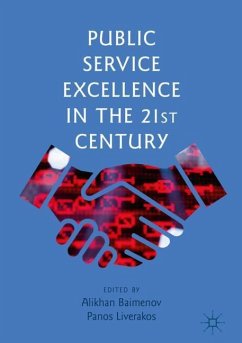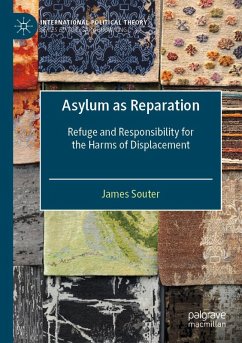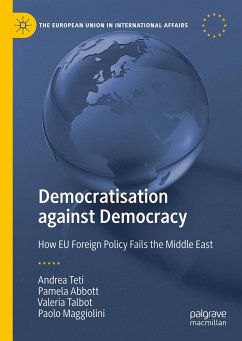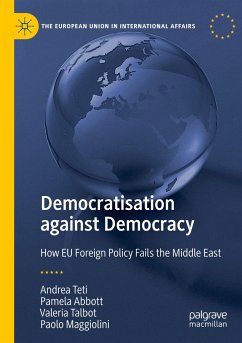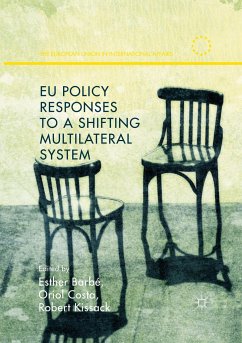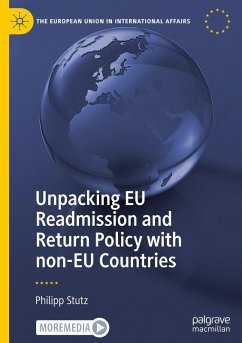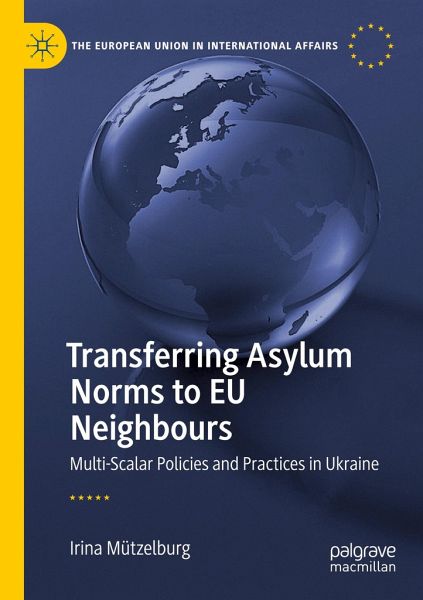
Transferring Asylum Norms to EU Neighbours
Multi-Scalar Policies and Practices in Ukraine
Versandkostenfrei!
Versandfertig in 6-10 Tagen
98,99 €
inkl. MwSt.
Weitere Ausgaben:

PAYBACK Punkte
49 °P sammeln!
This book analyses why the Ukrainian state established asylum laws and policies in the thirty years since 1991, even though the number of asylum seekers was very low. International and non-governmental organisations transferred international asylum norms to Ukraine. Various state and non-state actors participated in this process, translating, spreading, and resisting those norms. In many cases, legislative adoption was driven by domestic politicians' pursuit of recognition by international organisations, such as the European Union and the Council of Europe, and by their desire to meet conditio...
This book analyses why the Ukrainian state established asylum laws and policies in the thirty years since 1991, even though the number of asylum seekers was very low. International and non-governmental organisations transferred international asylum norms to Ukraine. Various state and non-state actors participated in this process, translating, spreading, and resisting those norms. In many cases, legislative adoption was driven by domestic politicians' pursuit of recognition by international organisations, such as the European Union and the Council of Europe, and by their desire to meet conditionality requirements. NGOs sought to influence administrative practices, alternating between confrontational and conciliatory, formal and informal approaches, and often relying on personal contacts. Actors used and shifted between scales in order to transfer norms or resist transfer. In the process, they produced, renegotiated, and confirmed those scales. For instance, NGOs resorting to the European Court of Human Rights to prevent refoulement placed the European scale above the national scale. This book offers a new multi-actor and multi-scalar analysis of policy transfer.







